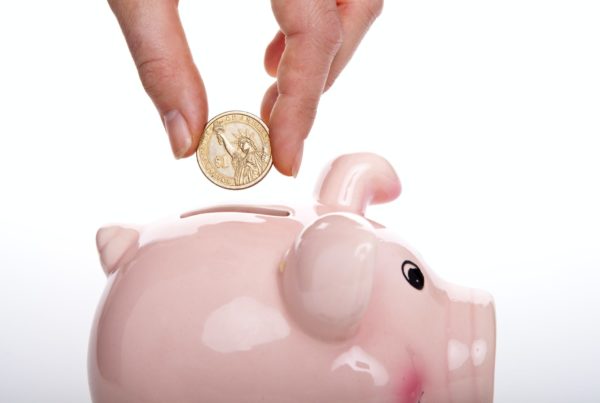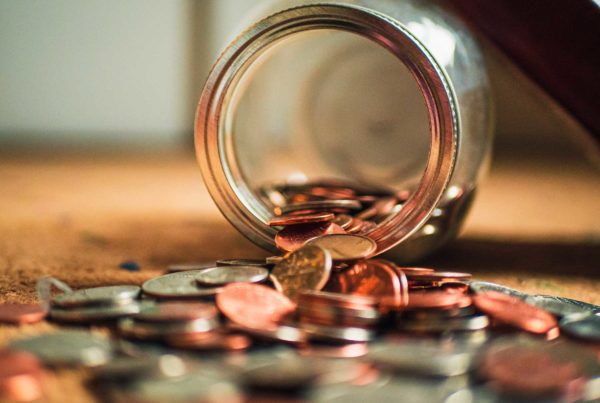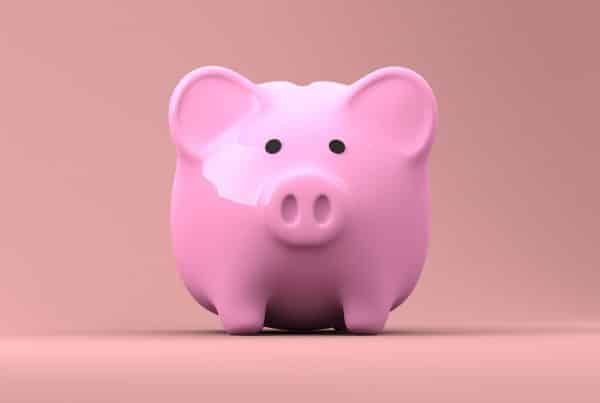Do you know how to start saving money? It often sounds simple in theory, but can be difficult in practice. In this article, we will explore some ways to make saving money easier.
The first of the month comes and your paycheck is already spoken for. You see the deposit in your bank account, but as soon as you pay off your bills, your account is down to nothing—or worse, negative. This cycle continues month after month. With this type of situation happening constantly, it can seem impossible to start saving money!
You make a good salary, and you don’t understand how you reached this point.
Sound familiar?
Sometimes it’s easier to ignore what’s going on than to face what’s causing it. You don’t want to change your lifestyle, and enough bills are getting paid to get through the month, so why rock the boat. Just keep paying what you can on the bills as they float in without worrying too much about your financial health.
But why do you do this?!
Simple: Because you know you’ll be overwhelmed and a little embarrassed when you see how reckless you have been with your money. Your family will argue over whose fault it is. You’ll have to turn down invitations from friends. You might have to give up your club membership, a car, or something else to which you have tied your identity.
The good news is that you are not alone! Debt spending has been normalized in our society, with young people routinely taking out loans to pay for college with the assumption they will pay it back later. This often leads to a debt spiral where borrowing to live the life you want becomes a pattern.
But your past spending doesn’t have to dictate your future choices.
Making our debt out to be this big monster gives it power over us. Avoiding reality just prolongs that anxiety that can only truly be helped by taking control of our money. And facing this reality is the first step to freeing up some of that paycheck.
Pay attention to your spending patterns

If it’s nothing or you are already in the negative, you need to check out my article on how to get out of debt. If you are barely meeting your minimum payments each month, you need to take a closer look at your big expenses and consider how to pay them off faster or eliminate them. It’s self-defeating to try to save while you are carrying high interest on old purchases.
If you still have a pretty healthy balance after fixed expenses, but come up short at the end of the month, it’s time to pay closer attention to your daily spending. Keep track of what you buy each day…every time you pull out your wallet…for at least two weeks. If there are multiple people spending in your household, this has to be a group effort. It’s not finger pointing—it’s just facts about where your money goes.
While this can be tedious, it is also eye opening. Whether you spend a lot on entertainment, shopping, treating friends to lunch, or beer, tally up the amount you spend on your biggest category and sit with that. Does it seem like too much when you think of it as a percentage of your pay?
Maybe you can tie it to a trigger. Is it something you do when you are bored or feel lonely?
Having the newest and the greatest can make you feel more powerful for a little while. But if you are using spending to prove yourself, consider that this is not sustainable and can cause real damage. Who’s acceptance and love are you trying to buy or maintain?
Make a plan to start saving money in the future
I don’t want you to remove all the joy from your life. In my article on spending, I talk about how spending money on things that bring us growth and real happiness is a good thing.
But too many extras can undermine your long-term financial goals.
Think about the big items you want to save for—retirement, college for your kids, an emergency fund if you were unexpectedly out of work.
These are elements that contribute to peace of mind, confidence, and more opportunities.
Would more financial flexibility relieve some of your anxiety? That alone is beneficial to your health.
Start by picking something small to cut back on with the intent of moving that money directly to savings for a bigger goal. Would you be willing to trade some anxiety for a weekend of no spending once a month? Maybe you could eat at home more often and direct the savings to an account. Or cut a subscription and direct that money to your savings.
If you pay off a debt, immediately redirect that payment to savings. You won’t miss the money, and now it’s padding your bottom line instead of someone else’s.
Make sure you pay bills and debts on time!
If you are in the habit of making late payments, this is an easy money-saving change. You may think missing a pay-by date is not a big deal. But credit cards will tack late fees onto your next bill.
It may not seem like much, but if you are carrying a balance and already paying interest month to month, it will stretch your payments out even longer. Late fees on top of high interest are a no-win situation. To eradicate debt, not only do you need to pay it down as quickly as possible. You have to stop adding to it.
Also, late payments on any bill has an adverse effect on your credit score, which makes borrowing money more expensive, further drawing out the time to pay off your purchases.
Automation can help you start saving money
Automating your savings is often discussed when people talk about saving money, with good reason. Even though it sounds simple, consider what happens when you don’t. You plan to save $200 a month towards your next car and you don’t automate this in any way.
When you go to pay your bills, you remember you had an unexpected AC repair, you have an extra bill from the dentist, or your kid needs a new hockey helmet. There will always be expenses that come up on a moment’s notice. Money set aside for something in the future is an easy target when you need money now.
Of course you have to pay for these expenses. If you have gone through a budgeting exercise, you know the importance of making room for surprises. But if savings is not automated, it’s too easy to borrow. You need cash to pay a friend your half of a shared outing. You have the cash now, so it disappears, and you figure you’ll save double next month.
Automating your savings prevents lazy budgeting and protects your “later” money. The money disappears from your account before you can get to it. It becomes a regular bill that you are paying yourself.
If you are constantly borrowing from your future self, you need to return to budgeting. Consider what goals are realistic for you right now. Focus on getting your debt under control and prioritize saving money.





